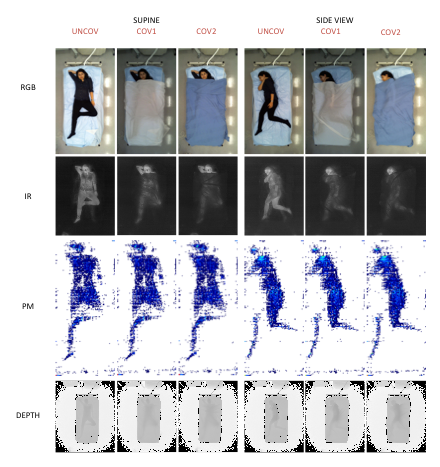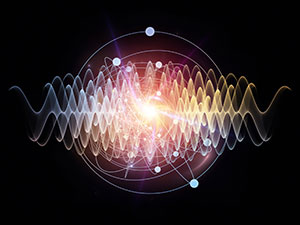- Our Story
- Publications & Resources
- Publications & Resources
- Publications
- IEEE Signal Processing Magazine
- IEEE Journal of Selected Topics in Signal Processing
- IEEE Signal Processing Letters
- IEEE Transactions on Computational Imaging
- IEEE Transactions on Image Processing
- IEEE Transactions on Information Forensics and Security
- IEEE Transactions on Multimedia
- IEEE Transactions on Signal and Information Processing over Networks
- IEEE Transactions on Signal Processing
- IEEE TCI
- IEEE TSIPN
- Data & Challenges
- Submit Manuscript
- Guidelines
- Information for Authors
- Special Issue Deadlines
- Overview Articles
- Top Accessed Articles
- SPS Newsletter
- SigPort
- SPS Resource Center
- Publications FAQ
- Blog
- News
- Dataset Papers
- Conferences & Events
- Community & Involvement
- Professional Development
- For Volunteers
- Information for Authors-OJSP
-
Home
Conferences Events IEEE Signal Processing Magazine IEEE SPL Article IEEE TIFS Article IEEE TMM Article IEEE TSP Article Jobs in Signal Processing Lectures Machine Learning Seasonal Schools Signal Processing News SPM Article SPS Distinguished Lectures SPS Newsletter Article SPS Webinar SPS Webinars SPS Webinar Series Webinar webinars
-
Our Story
What is Signal Processing?

The technology we use, and even rely on, in our everyday lives –computers, radios, video, cell phones – is enabled by signal processing. Learn More » -
Publications & Resources
-
SPS Resources
- Signal Processing Magazine The premier publication of the society.
- SPS Newsletter Monthly updates in Signal Processing
- SPS Resource Center Online library of tutorials, lectures, and presentations.
- SigPort Online repository for reports, papers, and more.
- SPS Feed The latest news, events, and more from the world of Signal Processing.
-
SPS Resources
-
Conferences & Events
-
Community & Involvement
-
Membership
- Join SPS The IEEE Signal Processing Magazine, Conference, Discounts, Awards, Collaborations, and more!
- Chapter Locator Find your local chapter and connect with fellow industry professionals, academics and students
- Women in Signal Processing Networking and engagement opportunities for women across signal processing disciplines
- Students Scholarships, conference discounts, travel grants, SP Cup, VIP Cup, 5-MICC
- Young Professionals Career development opportunities, networking
- Get Involved
-
Technical Committees
- Applied Signal Processing Systems
- Audio and Acoustic Signal Processing
- Bio Imaging and Signal Processing
- Computational Imaging
- Image Video and Multidimensional Signal Processing
- Information Forensics and Security
- Machine Learning for Signal Processing
- Multimedia Signal Processing
- Sensor Array and Multichannel
- Signal Processing for Communication and Networking
- Signal Processing Theory and Methods
- Speech and Language Processing
- Technical Working Groups
- More TC Resources
-
Membership
-
Professional Development
-
Professional Development
- Signal Processing Mentorship Academy (SigMA) Program
- Micro Mentoring Experience Program (MiME)
- Distinguished Lecturer Program
- Distinguished Lecturers
- Distinguished Lecturer Nominations
- Past Lecturers
- Distinguished Industry Speaker Program
- Distinguished Industry Speakers
- Distinguished Industry Speaker Nominations
- Industry Resources
- IEEE Training Materials
- Jobs in Signal Processing: IEEE Job Site
-
Career Resources
- SPS Education Program Educational content in signal processing and related fields.
- Distinguished Lecturer Program Chapters have access to educators and authors in the fields of Signal Processing
- Job Opportunities Signal Processing and Technical Committee specific job opportunities
- Job Submission Form Employers may submit opportunities in the area of Signal Processing.
-
Professional Development
-
For Volunteers
-
For Board & Committee Members
- Board Agenda/Minutes* Agendas, minutes and supporting documentation for Board and Committee Members
- SPS Directory* Directory of volunteers, society and division directory for Board and Committee Members.
- Membership Development Reports* Insight into the Society’s month-over-month and year-over-year growths and declines for Board and Committee Members
-
For Board & Committee Members
Popular Pages
Today's:
- Information for Authors
- (ICME 2026) 2026 IEEE International Conference on Multimedia and Expo
- IEEE Transactions on Image Processing
- IEEE Transactions on Information Forensics and Security
- IEEE Transactions on Multimedia
- Conference Call for Papers
- IEEE Signal Processing Letters
- Submit a Manuscript
- (ASRU 2025) 2025 IEEE Automatic Speech Recognition and Understanding Workshop
- IEEE Journal of Selected Topics in Signal Processing
- Information for Authors-SPL
- Unified EDICS
- (CAI 2026) IEEE Conference on Artificial Intelligence 2026
- Conferences & Events
- IEEE Transactions on Signal Processing
All time:
- Information for Authors
- Submit a Manuscript
- IEEE Transactions on Image Processing
- IEEE Transactions on Information Forensics and Security
- IEEE Transactions on Multimedia
- IEEE Transactions on Audio, Speech and Language Processing
- IEEE Signal Processing Letters
- IEEE Transactions on Signal Processing
- Conferences & Events
- IEEE Journal of Selected Topics in Signal Processing
- Information for Authors-SPL
- Conference Call for Papers
- Signal Processing 101
- IEEE Signal Processing Magazine
- Guidelines
Last viewed:
- Distinguished Industry Speaker Program
- Editorial Board Nominations
- IEEE Transactions on Audio, Speech and Language Processing
- IEEE Transactions on Multimedia
- (ICME 2026) 2026 IEEE International Conference on Multimedia and Expo
- Signal Processing Cup
- The ICASSP 2024 Audio Deep Packet Loss Concealment Grand Challenge: ICASSP 2024
- Board of Governors
- Information for Authors
- Top 5 Use Cases for Artificial Intelligence in Medical Imaging
- Industry Leaders in Signal Processing and Machine Learning: Luna Dong
- IEEE Signal Processing Cup 2025
- Publications FAQ
- IEEE Signal Processing Cup 2024
- Conference Call for Papers
Releasing SLP Dataset: To Learn How We Have Been Sleeping
You are here
Newsletter Menu
Newsletter Categories
Top Reasons to Join SPS Today!
1. IEEE Signal Processing Magazine
2. Signal Processing Digital Library*
3. Inside Signal Processing Newsletter
4. SPS Resource Center
5. Career advancement & recognition
6. Discounts on conferences and publications
7. Professional networking
8. Communities for students, young professionals, and women
9. Volunteer opportunities
10. Coming soon! PDH/CEU credits
Click here to learn more.
News and Resources for Members of the IEEE Signal Processing Society
Releasing SLP Dataset: To Learn How We Have Been Sleeping
Releasing SLP Dataset: To Learn How We Have Been Sleeping
The positions we take in our sleep could reveal important factors related to our physical/mental well-being as well as affect the symptoms of conditions such as sleep apnea, bedsores, or even carpal tunnel syndrome. Moreover, patients are usually required to maintain specific poses after certain surgeries to get a better recovery result and during pregnancy, pregnant women are recommended to avoid certain sleeping postures that could cause harm to the fetus. Therefore, long-term monitoring and automatically detecting in-bed poses are of critical interest in healthcare. Currently, besides self-reporting by patients and visual inspection by the caregivers, in-bed pose estimation methods mainly rely on the use of pressure mapping systems, which are expensive and hard to maintain.
Our goal in this research is enabling the use of advanced computer vision techniques in order to tackle challenges faced when sleep pose monitoring is desired. Although in the last decade, computer vision has been extremely successful in employing deep learning for many visual perception tasks, its use is still hindered when it comes to practical medical applications. This shortcoming is due to the factors that are shared in the majority of the medical applications, including: (1) lack of enough sample data and the cost of data gathering and labeling, (2) patient’s privacy concerns, (3) patient’s safety and comfort consideration, and (4) accessibility and unobtrusiveness of the data collection/monitoring technologies.

Assistant Professor Sarah Ostadabbas and her team in the Augmented Cognition Laboratory (ACLab) at Northeastern University received a grant from the National Science Foundation to build a dataset of sleep positions and use it to train computer vision algorithms to accurately recognize the pose of a sleeping person in a bed. They recently shared both the dataset and their algorithms on the ACLab website, to allow other researchers to use and expand on their work. This first-ever large scale dataset on in-bed poses are called “Simultaneously-collected multimodal Lying Pose (SLP)” (is pronounced as SLEEP). The lead PhD student of this project, Shuangjun Liu has combined different sensing technologies with machine learning techniques to monitor a sleeper’s position even under a full cover and in total darkness. His work could make the sleep monitoring easier for healthcare providers and less invasive for patients.
To build the dataset, the team recruited more than 100 people from the Northeastern community to come to their lab and lie down in various sleeping positions on a hospital bed or a regular twin size bed. The researchers collected several types of data from each participant, with and without a sheet or blanket, using a sensor mat under the person to take the contact pressure readings, an overhead depth sensor, and two cameras that took RGB and infrared images. Each session took about two hours. At the end of it, we have compiled SLP dataset with more than 14,000 pose samples that are fully labeled. ACLab would also like to acknowledge PhD student XiaoFei Huang, and Ms students Zhun Deng, Zhilan Li, Cheng Li, and Zhongnan Su, who contributed significantly in the SLP data collection and labeling.
By effective monitoring human pose under darkness and blanket, our SLP dataset and its associated tools can directly be employed in several healthcare applications such as long-term sleeping behavior studies.
Open Calls
| Nomination/Position | Deadline |
|---|---|
| Call for Nominations: Awards Board, Industry Board and Nominations & Elections Committee | 19 September 2025 |
| Take Part in the 2025 Low-Resource Audio Codec (LRAC) Challenge | 1 October 2025 |
| Meet the 2025 Candidates: IEEE President-Elect | 1 October 2025 |
| Call for proposals: 2027 IEEE Conference on Artificial Intelligence (CAI) | 1 October 2025 |
| Call for Nominations for the SPS Chapter of the Year Award | 15 October 2025 |
| Call for Papers for 2026 LRAC Workshop | 22 October 2025 |
| Submit a Proposal for ICASSP 2030 | 31 October 2025 |
| Call for Project Proposals: IEEE SPS SigMA Program - Signal Processing Mentorship Academy | 2 November 2025 |
Society News
- Call for Officer Nominations: Vice President-Conferences and Vice President-Publications
- Call for Nominations for Editor-in-Chief
- 37 SPS Members Elevated to Fellow
- Hyderabad Chapter Receives the 2019 Chapter of the Year Award!
- 151 Signal Processing Society Members Elevated to Senior Member!
- Job Opportunities in Signal Processing
- Upcoming Distinguished Lectures
- Call for Nominations: Division IX Director-Elect
- SPS Members Receive 2020 IEEE Awards
- Nominate an IEEE Fellow today!
- 2019 IEEE Signal Processing Society Awardees
Education & Resources
Technical Committee News
Conferences & Events
SPS Social Media
- IEEE SPS Facebook Page https://www.facebook.com/ieeeSPS
- IEEE SPS X Page https://x.com/IEEEsps
- IEEE SPS Instagram Page https://www.instagram.com/ieeesps/?hl=en
- IEEE SPS LinkedIn Page https://www.linkedin.com/company/ieeesps/
- IEEE SPS YouTube Channel https://www.youtube.com/ieeeSPS
Home | Sitemap | Contact | Accessibility | Nondiscrimination Policy | IEEE Ethics Reporting | IEEE Privacy Policy | Terms | Feedback
© Copyright 2025 IEEE - All rights reserved. Use of this website signifies your agreement to the IEEE Terms and Conditions.
A public charity, IEEE is the world's largest technical professional organization dedicated to advancing technology for the benefit of humanity.









